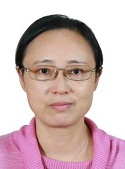| Biography | |
|---|---|
 Prof. Liming Zhang University of Macau, China |
|
| Title: Stochastic Adaptive Fourier Decomposition and Its applications in Signal and Image Processing | |
| Abstract: Sparse representation has attracted much attention from researchers in the fields of signal processing and image processing. In the literature, sparse representation methods are divided into two large types in general based on the choice of the dictionary. The dictionaries of the first type are characterized by an analytic formulation and a fast implicit implementation, while the dictionaries of the second type are learned based on the specific signal data. The dictionaries of analytic methods include the transform-based methods in which each dictionary forms a basis, and the decomposition of the signal usually uses the pre-selected fixed bases, such as discrete cosine transform (DCT) and Wavelets. The advantages of the analytic methods include fully mathematical descriptions of the dictionary atoms and the formulated construction of the decomposition processes, while the disadvantage is that it lacks of adaptability to different signals. In the learning-based methods, the dictionaries are typically represented as explicit matrices, and there is no mathematical description on the dictionary atoms. A training algorithm is employed to adapt the matrix coefficients to different signals. The advantages of the learning-based methods are the adaptability to the represented signals and significantly better performance in applications than that of most analytic algorithms. The disadvantages lie in the expense of generating an unstructured dictionary and unexplainable to the dictionary atoms.
Adaptive Fourier decomposition (AFD) is a newly developed signal processing tool that combines the transform-based signal decomposition together with the adaptive idea of the learning process in sparse representation. Like other transform-based analytic algorithms, the dictionary of AFD is pre-defined and each atom in the AFD-based dictionary has a precise mathematical formula enjoying good analytic properties. The differences are that the dictionary of AFD is redundant and the decomposition process is performed according to the adaptive selection of atoms from the dictionary through orthogonal processing. The adaptive decomposition offers faster convergence to the interested signal than traditional transform-based algorithms, while the atoms have the positive frequency property that provides the possibility for further analysis. Stochastic-AFD is an extended theory on top of AFD. AFD and its variations are designed for the sparse representation of a single deterministic signal, while SAFD aims to simultaneously decompose multiple signals using a sequence of common atoms.
This talk will introduce the principle of SAFD and provide some applications in signal and image processing, including ECG based personal identification recognition, image compression, and video compression. It has potential to become a new core technology in image and video compression. | |
| Biography: Liming Zhang received the B.S. degree in Computer Software at Nankai University, China and M.S. degree in Signal Processing at Nanjing University of Science and Technology, China. She received her PhD degree in image processing at University of New England, Australia. She is currently an assistant professor in Faculty of Science and Technology, University of Macau. Her research interests include Signal processing, Image processing, Computer vision and Multimedia computing. She has published over 40 SCI journal papers, including IEEE TIP, IEEE SP, Automatica, IEEE TGRS, etc. | |
